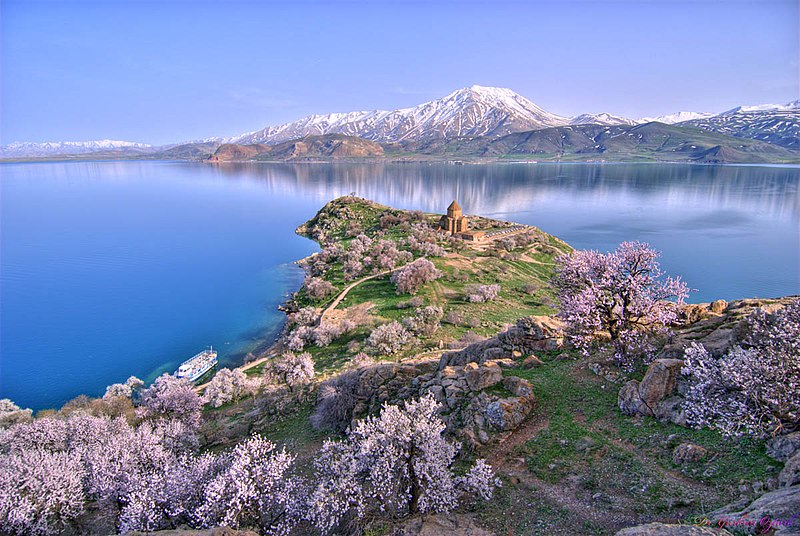Posted on 1 week ago
TUNCELI Turkey (AFP) – They dropped their language and religion to survive after the 1915 genocide, but close to 100 years on Turkey s “hidden Armenians” want to take pride in their identity.
Some genocide survivors adopted Islam and blended in with the Kurds in eastern Turkey s Dersim mountains to avoid further persecution.
Several generations down the road, the town of Tunceli hosted a landmark ceremony Wednesday for Genocide Remembrance Day, something which has only ever happened in Istanbul and the large city of Diyarbakir.
The massacre and deportation of Ottoman Armenians during World War I, which Armenians claim left around 1.5 million dead, is described by many countries as genocide although Ankara continues to reject the term.
Speaking in front of the ruins of the Ergen church — one of the few remnants of Christian Armenian heritage in the region — Miran Pirginc Gultekin, president of the Dersim Armenian Association, explained it was still rare to declare oneself openly as Armenian in Turkey.
“We decided that we had to get back to our true nature, that this way of living was not satisfactory, that it was not fair to live with another s identity and another s faith,” he said.
Despite converting to Alevism, a heterodox sect of Islam, and taking Turkish names, the ethnic Armenians who stayed on their ancestral land suffered from continued discrimination and the elders often struggle to summon their memories.
“My mother told me how her family was deported. She was a baby at the time and her mother considered drowning her in despair,” said Tahire Aslanpencesi, a sprightly octogenarian from the village Danaburan.
“My mother used to say all the misery that came after would have been avoided had her mother drowned her,” she recalled.
After converting to Islam, many of the so-called “crypto-Armenians” said they still faced unfair treatment: their land was often confiscated, the men were humiliated with “circumcision checks” in the army and some were tortured.
Hidir Boztas grandfather converted to Islam, gave his son a Turkish name and the clan intermarried with a Kurdish community in the village of Alanyazi.
“We feel Armenian nonetheless and in any case the others always remind us of where we come from. No matter how many of their daughters we marry, and how many of ours we give them, they will continue to call us Armenians,” he said.
The Armenian community shared the Kurds suffering when the regime cracked down on Kurdish rebellions, from the 1938 revolt to the insurrection started by the PKK group in 1984.
For a long time, only those who had left the ancestral homestead dared to make their Armenian roots known.
“Armenians in Istanbul are in a big city, they have their neighbourhoods, their churches, nobody can do anything to them. But in these villages, there s rejection and insults,” said Hidir Boztas, 86.
Human rights campaigners gathered Wednesday in downtown Istanbul carrying portraits of genocide victims.
They were only a handful but they argued that the simple fact that such an event was authorised and groups such as theirs invited proved that attitudes were changing.
“Ten years ago, such an event was impossible in Turkey,” said Benjamin Abtan,” a European activist.
One of Hidir s nephews, 42-year-old Mustafa, a businessman, is one of a growing number of Muslim Armenians who want to be proud of their identity.
Mustafa has decided to name his construction firm Bedros after Hidir s grandfather, who was deported during the genocide.
“It symbolised my past. My great-grandfather was called Bedros, and I wanted his name to live on. I am against radicalism, and I don t do this through racism or religious extremism, but I don t deny my origins — everyone knows them.”
He said he hoped the unprecedented ceremony in Tunceli Wednesday would encourage more members of the community to come out in the open.
“The aim is to allow people to assert their identity more freely and also to generate more interest for the little Christian heritage left in the region,” said Miran Pirginc Gultekin.
His society was created three years ago and has around 80 members.
